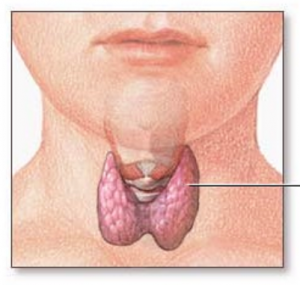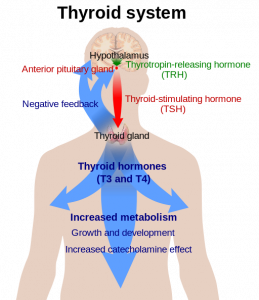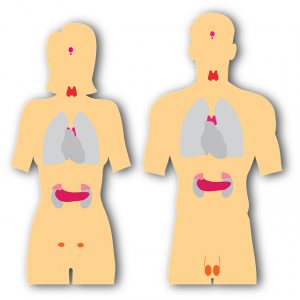Good thyroid health depends, in part, upon the bio-synthesis of selenium-dependent seleno-enzymes called deiodinases. These seleno-enzymes are key factors in thyroid hormone metabolism and regulation. Thyroid hormones regulate the body’s metabolism (think: energy expenditure, body weight, body temperature, digestion, heart rate, etc.).

There are three types of deiodinase enzymes. In normal thyroid function, these deiodinases regulate the activation and inactivation of the T4 and T3 thyroid hormones, as needed. Abnormal thyroid hormone function is closely associated with diminished health-related quality of life and with increased risk of cardiovascular morbidity and mortality.
In many selenium-poor regions of the world, including much of Europe and the Middle East, low selenium intake and status may cause sub-optimal synthesis of deiodinase enzymes and, consequently, sub-optimal thyroid gland function. Selenium is an essential trace element found in soil, and humans must get it from their food.




